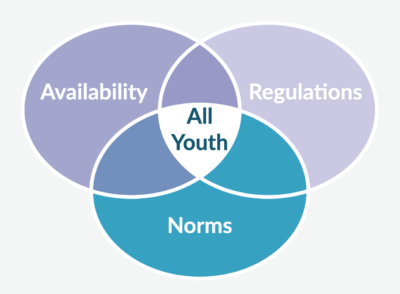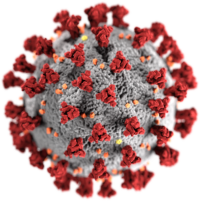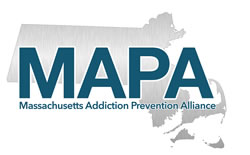Ballot Initiative to Deregulate Alcohol Sales Moves Forward
MAPA is disappointed to learn that the Massachusetts Supreme Judicial Court ruled against us in the challenge to Initiative 19-14: Cumberland Farms’ effort to deregulate alcohol by having voters authorize convenience store beer and wine licenses, as well as unlimited package store licenses by a single entity in Massachusetts.
What Does the Ruling Mean?
With this ruling, the ballot initiative will be allowed to go forward in November, and voters will be deciding whether to deregulate alcohol retail and outlet density in the state. Because retail marijuana licenses are tied into alcohol retail licenses, this ballot initiative has the potential to deregulate recreational marijuana, as well.
Attorney John Scheft of Bellotti Law Group, who represented our case, accurately explains: “We know that the odds were slim that the SJC would rule in our favor on this matter. The constitutional framework behind these voter petitions results in minimal substantive review of the real costs of these ‘popular campaigns,’ which, increasingly in the modern age, are corporate-driven exercises that benefit from a deliberately uninformed electorate.
The term ‘uninformed’ isn’t a criticism. Many of these proposed laws–including this one–take trained lawyers multiple readings to understand. Voters can hardly be expected to comprehend their potential impact.”
What is at Stake?
The regulation of alcohol outlet density through license limitation has been a longstanding, highly effective and scientifically proven strategy for preventing the harmful effects of alcohol use, particularly on young people. This ballot initiative, if passed, would remove these licensing limits that have been a cornerstone of our state’s alcohol policy that protect communities from increased violence, crime and harmful health outcomes.
While Cumberland farms will likely argue that there is economic benefit to deregulation, even that has not proven true in prior cases. In Washington state, when a single company bought a ballot initiative, tax revenue from alcohol sales decreased significantly and the price of alcohol increased–to say nothing of the public health dangers of the deregulation.
For all of the reasons in our amicus brief, the Massachusetts Addiction Prevention Alliance and the Health Foundation of Central Massachusetts maintain that the deregulation of alcohol sales will affect public health in the Commonwealth for decades.
What’s Next?
MAPA will continue our campaign to keep alcohol outlet density in Massachusetts regulated. Because this issue is now in the hands of voters, our role is to educate voters and influencers on the arguments against “outlet density” described in our amicus brief. Our collective COVID-19 experience–which is often pitting the needs of corporations and the economy against public health–may serve to increase public support for prioritizing public health over alcohol retail interests. As the costs of addiction-for-profit mount, public skepticism of corporate-written ballot questions should, too.
If you’d like to help, one way to do so is to contribute to MAPA during our Match Campaign. Your donation will be matched 100% by The Josephine and Lester Hensley Foundation. Click here to donate.
As I See It: Let’s do what’s working for COVID-19 and beat addiction, too
The addiction prevention community holds onto hope that in the post-covid world, lessons learned about public health will lead to needed and urgent policy action to reduce and prevent addiction.
REVERE JOURNAL: Public Health Groups File to Stop Proposed Ballot Question on Alcohol Licensing
The Revere Journal recently covered MAPA’s efforts to stop the proposed ballot question that would deregulate alcohol licensing in Massachusetts. Click here to read the article.
Environmental Prevention Strategies

It’s a pivotal moment for organizations like MAPA, whose goal is to protect children, families and communities from drug use and addiction. As giant addiction for-profit industries push for deregulation, we must remain unified and increase our commitment to the science-based, environmental prevention strategies that research has made clear are the single most influential measure in reducing population-level alcohol, tobacco and other drug problems.
Why Environmental Prevention?
“Environmental prevention addresses the environmental factors (physical environment and community norms) that support the use of alcohol and other drugs,” says a report from the Community Prevention Initiative (CPI). “Environmental prevention brings a specific community focus to prevention, which can complement individual strategies. While individual prevention strategies focus on behavior change, environmental prevention engages a public health approach to impact substance use on a larger scale by limiting access to substances, changing public laws, policies, and practices, and changing social norms that contribute to substance use.”
Environmental prevention strategies are proven to be effective in reducing drug and alcohol abuse within communities. And substance misuse is a community problem. Aside from the moral imperative to reduce it, substance use disorder has a tremendous economic cost–to the tune of $442 billion a year in health costs, lost productivity and criminal justice costs. According to a report by the Surgeon General, environmental-based interventions (EBIs) have a $58 benefit for every dollar spent. And yet, they are rarely used: only 8 to 10% of school administrators report using EBIs and only around 11% of youth aged 12 to 17 report receiving substance misuse prevention education outside of school.
Effective, community-based policies for reducing problem use exist, and we must continue to implement them in order to present an increasingly united front of community as large corporations lobby for deregulation that will increase access to and acceptability of alcohol and drugs across communities. When it comes to addictive commodities, deregulation leads to business practices and social norms that promote and accept addiction in a for-profit scheme. It takes collective action from parents, schools, health care systems, faith-based communities, social service organizations, advocates and policymakers to successfully implement regulations and controls that work to reduce and prevent the disease of addiction and its associated harms.
What Strategies Work?
A report from the National Community Anti-Drug Coalition Institute dives deeper into strategies for environmental-based initiatives for substance use disorder prevention, including several successful examples of implementation.
In Salt Lake City, a coalition tasked with reducing alcohol use among youth indicated the importance of understanding your community’s stakeholders, addressing community education and awareness, ensuring that the strategy fits the community culture, and understanding state laws, who enforces them, and how they are enforced.
An initiative in North San Diego County to reduce youth marijuana use demonstrated how targeting both city policymakers and event organizers for music festivals and street fairs–which had a lot of messaging portraying marijuana use as “fun” and “harmless”–could create positive environmental change for youth.
Creating Culturally Sensitive Strategies That Work for Individual Communities
But as the CPI report points out, we should not assume that strategies that work for one community will work in another. “If the demographics and norms of a community are not considered and existing leaders of a given community are not included in the planning and implementation process, prevention strategies may be less relevant to community members, and consequently less well supported and less successful. Every community has a culture, and cultural responsiveness should always be a first principle of substance [misuse] prevention.”
Some of the strategies CPI suggests for culturally responsible environmental prevention include:
- Acknowledging diversity, difference and issues of oppression
- Respecting individuals, communities and cultures with whom you interact
- Building citizen-driven, rather than provider-driven, approaches
- Recognizing differing and competing views, and helping to negotiate arrangements that consider and benefit the targeted community
- Working across silos toward the holistic wellness of communities
- Being strong facilitators and organizers
Support MAPA in Bringing the Right Strategies to Massachusetts Communities
At MAPA, we continue to work toward these important environmental-based interventions at the state level and in cities and towns across the Commonwealth. Your support is essential in advancing primary prevention and reducing youth use rates. We are up against large business forces pushing to dismantle the public health standards in place that work to prevent an epidemic of Substance Misuse Disorders and its associated harms on our families and communities.
Currently, The Josephine and Lester Hensley Family Trust is offering a 100% gift match for any donations to MAPA up to $10,000. This means that any donation you make will have double the impact–a donation of $25 will net $50 for MAPA, $250 nets $500 and $1,000 nets $2,000.
Donate today to ensure that your gift is doubled and to help us as we continue in our work to prevent addiction and protect Massachusetts youth and communities from both the continued and emerging outcomes of alcohol and drug abuse.
COVID-19 and Substance Use Disorders
As concerns about coronavirus grip the nation, there’s been a particular emphasis on protecting the elderly and those with underlying conditions that may worsen its effects and outcomes. But as new data comes in, it is becoming clear that COVID-19 is also more deadly for those who smoke or vape tobacco or marijuana, and that a substance use disorder (SUD) puts an individual at heightened risk for the coronavirus.
Science to support this as a potential public health issue is emerging. As a contagious illness, COVID-19 is likely to be a long-lasting health concern for our communities, and due to the increased risk to those who vape, smoke or have an S UD, protecting our youth and families from the adverse effects of alcohol and drug use must be a part of the community response to the pandemic. For this reason, MAPA’s work preventing youth drug use and addiction–including education on SUDs and COVID-19 outcomes– is more important than ever.
UD, protecting our youth and families from the adverse effects of alcohol and drug use must be a part of the community response to the pandemic. For this reason, MAPA’s work preventing youth drug use and addiction–including education on SUDs and COVID-19 outcomes– is more important than ever.
Compromised lung function or lung disease may worsen outcomes
Coronavirus attacks the lungs, and those with underlying issues such as diabetes, cancer and respiratory conditions are considered at higher risk for death and serious illness.
“It would be reasonable to think that any condition that potentially affects the lungs, be it chronic or acute effects from such behavior such as smoking or vaping, regardless of the ingredients inhaled, could play a role in making someone more susceptible to complications from the disease,” said American Lung Association’s Chief Medical Officer Albert Rizzo, M.D., in an article on the ALA’s website.
In a recent study published by the New England Journal of Medicine, people who smoke were 2.4 times more likely to have severe symptoms from COVID-19 compared to those who did not smoke. The CDC has identified smokers as a high-risk group for COVID-19.
The National Institute for Drug Abuse raised the alarm on a potential link between SUDs and COVID-19 outcomes, stating that coronavirus could be “an especially serious threat to those who smoke tobacco or marijuana or who vape. People with opioid abuse disorder (OUD) and methamphetamine use disorder may also be vulnerable due to those drugs’ effects on respiratory and pulmonary health.”
“We know that the odds of disease progression, including death, is about 12 to 14 times higher among people with smoking or vaping history,” Dr. Nathan Do, a pulmonologist with AdventHealth in Tampa, FL told Healthline. “However, this does not place them at the top of any list as far as treatment is concerned and is not part of the screening for COVID-19 [at the time of this interview].”
NIDA identified “emerging evidence [to suggest] that exposure to aerosols from e-cigarettes harms the cells of the lung and diminishes the ability to respond to infection.” OUD or high doses of medical opioids also present respiratory health challenges. Opioids act in the brainstem to slow breathing, potentially causing a harmful decrease of oxygen in the blood. In addition, diminished lung capacity due to COVID-19 could also accelerate death risk, as we know that chronic respiratory disease can increase mortality in opioid users. A history of methamphetamine use may also escalate the lethality of the virus due to constricting the blood vessels, which contributes to pulmonary damage and pulmonary infection.
Unique challenges for those with a SUD in transmission & accessing treatment
Aside from the underlying conditions that may make those with SUDs more susceptible to severe outcomes to COVID-19, there are a number of social factors at play. “Individuals with substance use disorder are more likely to experience homelessness or incarceration than those in the general population, and those circumstances pose unique challenges regarding transmission of the virus that causes COVID-19,” said the NID in its report.
NIDA also identified risks associated with SUDs including decreased access to healthcare, housing insecurity and greater likelihood of incarceration. “Limited access to health care places people with addiction at greater risk for many illnesses, but if hospitals and clinics are pushed to their capacity, it could be people with addiction–who are already stigmatized and underserved by the healthcare system–will experience even greater barriers to treatment for COVID-19.”
Continuing MAPA’s work during the pandemic
As public health officials focus on tackling the COVID-19 outbreak in our communities, MAPA remains focused on ensuring that education, research and policy work around substance misuse continues in an effort to protect our communities from its adverse effects, including those related to COVID-19.
Currently, The Josephine and Lester Hensley Family Trust is offering a 100% gift match for any donations to MAPA up to $10,000. This means that any donation you make will have double the impact–a donation of $25 will net $50 for MAPA, $250 nets $500 and $1,000 nets $2,000.
Donate today to ensure that your gift is doubled and to help us as we continue in our work to protect Massachusetts youth and communities from addiction and the continued and emerging outcomes of alcohol and drug abuse.
Problem displaying Facebook posts. Backup cache in use.
Click to show error
